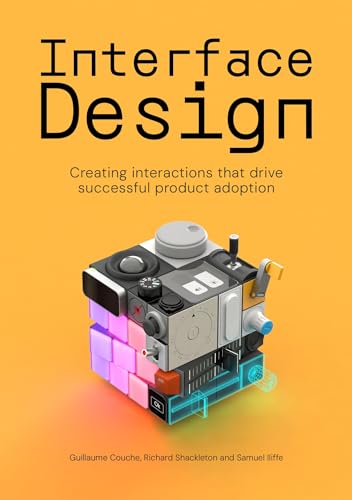Creating successful product adoption through interface design interactions
An interface serves as the point of interaction between a user and a system. It provides a platform where users can input commands and receive outputs from the system. Interfaces come in various forms, such as graphical user interfaces (GUIs), command-line interfaces (CLIs), and application programming interfaces (APIs). The design of an interface plays a crucial role in determining the user experience and usability of a system. This introduction will explore the different types of interfaces, their characteristics, and the importance of designing user-friendly interfaces for optimal user interaction.

Interface Plot Summary
Interface is a science fiction novel written by Neal Stephenson and J. Frederick George, published in 1994. The story is set in a near-future United States where technology reigns supreme and corporations rule with an iron fist. The novel follows the journey of a young political campaign manager, Richard Forthrast, as he navigates the murky waters of politics and corporate intrigue.
The plot of Interface centers around a groundbreaking new technology known as “interface,” which allows a person’s consciousness to be uploaded into a computer system and transferred into another person’s body. This technology is developed by a powerful corporation known as American Axelrod, which is secretly controlled by a shadowy figure known only as “Mr. Frost.”
Richard Forthrast is hired to manage the political campaign of Nevada governor Kenneth Layton, who is running for President of the United States. However, things take a dark turn when Layton suffers a stroke and is left in a coma. In a desperate attempt to salvage the campaign, Forthrast agrees to have his consciousness transferred into Layton’s body using the interface technology.
As Forthrast assumes Layton’s identity and begins his presidential campaign, he quickly realizes that there are sinister forces at play. American Axelrod and Mr. Frost are using him as a puppet to further their own agenda, which involves manipulating the American public and gaining control of the government.
As Forthrast delves deeper into the world of politics and technology, he must navigate a treacherous landscape filled with betrayal, deception, and danger. Along the way, he forms alliances with unlikely allies, including a group of hackers known as the Brain Trust, who are determined to expose the truth behind American Axelrod’s nefarious plans.
Despite the risks and challenges he faces, Forthrast is determined to uncover the truth and take down the corrupt forces that threaten the country. Along the way, he must confront his own inner demons and grapple with the ethical implications of his actions. Can he maintain his humanity while inhabiting another person’s body? Will he be able to outmaneuver the powerful forces that seek to control him?
Interface is a thrilling and thought-provoking novel that explores complex themes such as technology, politics, identity, and power. The authors paint a vivid and immersive portrait of a future world where the line between human and machine blurs, and the consequences of unchecked corporate greed and political corruption are laid bare.
The characters in Interface are well-developed and multi-dimensional, with Forthrast serving as a relatable and sympathetic protagonist. His journey from a cynical political operative to a reluctant hero is compelling and engaging, drawing the reader into the story and keeping them invested in his fate.
The world-building in Interface is also top-notch, with the authors crafting a rich and detailed setting that feels both familiar and alien. The use of cutting-edge technology such as interface adds a layer of intrigue and mystery to the narrative, keeping readers guessing and on the edge of their seats.
Overall, Interface is a gripping and thought-provoking science fiction novel that raises important questions about the ethical implications of technology and the corrupting influence of power. The novel’s fast-paced plot, engaging characters, and rich world-building make it a must-read for fans of the genre and anyone interested in exploring the intersection of politics and technology in a dystopian future.
Interface Key Takeaway
The key takeaway from the book Interface by Neal Stephenson and J. Frederick George is the power and influence of technology in shaping society. The novel explores the concept of a computer interface that allows the manipulation of the human brain, blurring the lines between man and machine.
One of the major themes in the book is the ethical implications of advancing technology and the potential consequences of merging humans with machines. The authors raise important questions about who controls technology and how it can be used for both good and evil purposes.
The story also highlights the impact of corporate interests and political manipulation on technological advancements. As the protagonist, Richard Forthrast, becomes entangled in a dangerous game of political intrigue and power struggles, the reader is forced to consider the consequences of unchecked technological progress.
Overall, Interface serves as a cautionary tale about the potential dangers of merging technology with the human mind, and the importance of ethical considerations in the development of new technologies. It serves as a reminder to consider the implications of our actions and decisions when it comes to advancing technology.
Conclusion
In conclusion, “Interface” by Neal Stephenson and J. Frederick George is a riveting political thriller that delves into the complex world of political manipulation, media influence, and the power struggles that shape society. The authors skillfully weave together technology, politics, and human drama to create a compelling narrative that will keep readers on the edge of their seats.
This book is perfect for readers who enjoy thought-provoking and fast-paced thrillers that explore the darker side of government and corporate power. Fans of Neal Stephenson’s other works, such as “Snow Crash” and “Cryptonomicon,” will especially appreciate his unique storytelling style and meticulous attention to detail.
Overall, “Interface” is a gripping and thought-provoking read that will leave readers questioning the true nature of power and the lengths to which people will go to maintain it. Highly recommended for fans of political thrillers and speculative fiction.

No responses yet